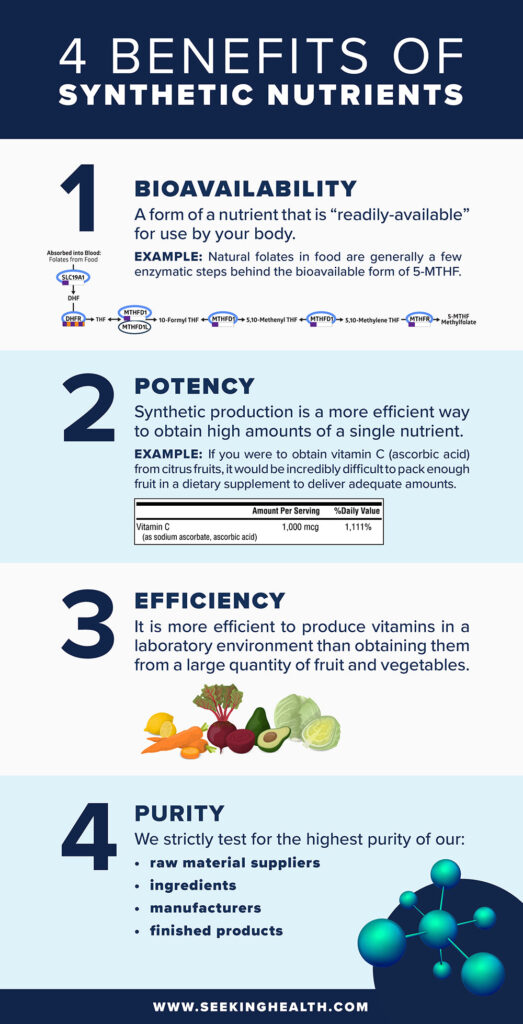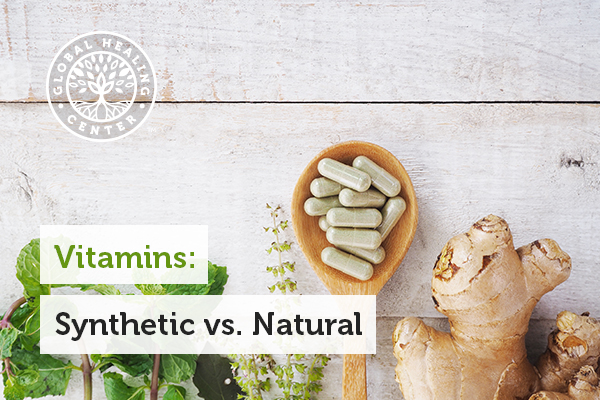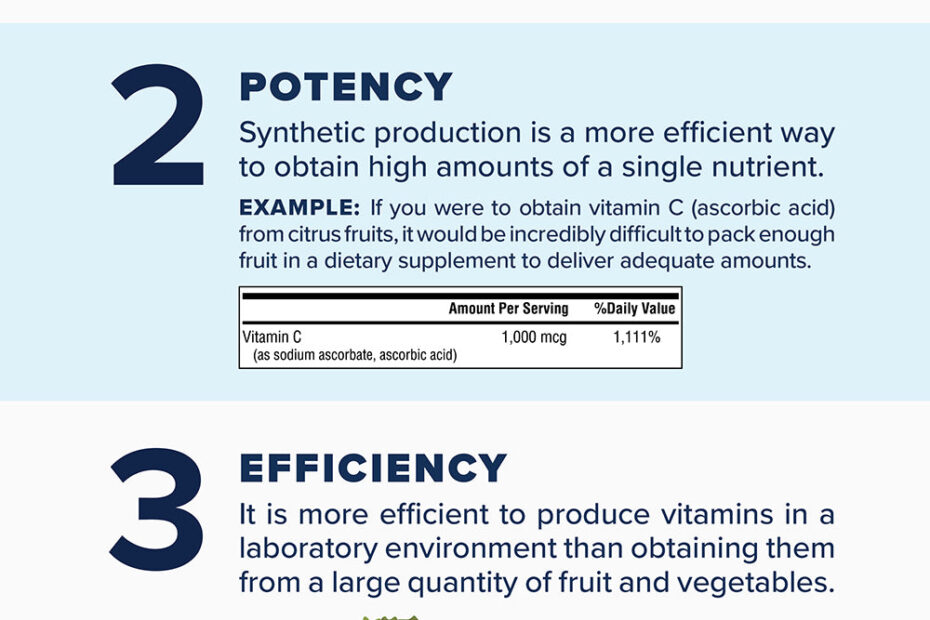In our upcoming article, we will delve into the debate of whether natural supplements are always superior to their synthetic counterparts. We’ll explore the benefits and drawbacks of both types, giving you a well-rounded understanding of the topic. Whether you’re curious about the differences in effectiveness, safety, or environmental impact, we’ve got you covered. So sit back, relax, and get ready to discover the truth about natural and synthetic supplements. Stay tuned!

This image is property of theaspenclinic.com.
Understanding Natural and Synthetic Supplements
Natural and synthetic supplements are two categories of dietary supplements commonly used to support overall health and well-being. While both types are intended to provide essential nutrients and promote optimal bodily function, they differ in their sources, production methods, effectiveness, safety profiles, bioavailability, environmental impact, personal preferences, cost-effectiveness, and scientific evidence.
Defining Natural and Synthetic Supplements
Natural supplements, also known as botanical supplements, are derived from natural sources such as plants, herbs, and other naturally occurring substances. These supplements are generally considered to be closer to their original form and may contain additional phytochemicals that can offer potential health benefits. On the other hand, synthetic supplements are artificially created in laboratories and designed to mimic the natural substances found in the body. They are often made by isolating and replicating specific vitamins, minerals, or other nutrients.
How Natural and Synthetic Supplements are Produced
The production of natural supplements typically involves harvesting plants, herbs, or other natural sources and extracting the desired nutrients through various methods such as cold pressing, drying, or extraction with solvents. The resulting extracts are then processed and concentrated into supplement forms such as capsules, tablets, or powders. Synthetic supplements, on the other hand, are created by chemically synthesizing individual nutrients or compounds. These lab-created substances are then combined with other ingredients to form the final supplement product.
Effectiveness of Natural and Synthetic Supplements
When it comes to the effectiveness of natural and synthetic supplements, it is crucial to consider the context. While natural supplements may contain additional plant compounds and phytochemicals that can provide potential health benefits beyond the specific nutrient they contain, synthetic supplements are designed to provide a targeted dose of a particular nutrient.
Evaluating the Efficacy of Natural Supplements
Natural supplements often claim to offer a wide range of health benefits due to their natural source and the presence of additional bioactive compounds. For example, herbal supplements like turmeric or echinacea are believed to have anti-inflammatory and immune-boosting properties. While there is some scientific evidence supporting the efficacy of certain natural supplements, it is important to note that not all claims are supported by rigorous studies. It is essential to evaluate the specific supplement’s scientific evidence and consult with healthcare professionals before incorporating them into your routine.
Assessing the Effectiveness of Synthetic Supplements
Synthetic supplements, on the other hand, are designed to deliver a specific nutrient in a concentrated form. This targeted approach can be advantageous for individuals with specific nutrient deficiencies or those who require higher doses of certain nutrients. For example, vitamin D supplements are often prescribed to individuals with low blood levels of this essential nutrient. Synthetic supplements can indeed provide the intended nutrient benefit, but it is important to note that they may lack the additional bioactive compounds and potential synergistic effects found in natural supplements.

This image is property of authenticbiotics.com.
Safety Profile and Side Effects
Ensuring the safety of supplements is of utmost importance as they are taken internally. It is crucial to understand the safety profiles and potential side effects of both natural and synthetic supplements before incorporating them into your daily regimen.
Analyzing the Safety of Natural Supplements
Natural supplements are generally considered safe, as they are derived from naturally occurring sources. However, it is important to note that natural does not always equate to safe or without potential side effects. Some natural supplements may interact with certain medications or have adverse effects if taken in excessive amounts. It is important to consult with a healthcare professional or a qualified naturopath before starting any new natural supplement.
Examining the Side Effects of Synthetic Supplements
Synthetic supplements, like any other medication or supplement, can have potential side effects. However, since synthetic supplements are formulated to deliver a specific nutrient in a concentrated form, the risk of unwanted side effects may be lower compared to natural supplements. Nonetheless, it is still important to follow the recommended dosage and consult with a healthcare professional.
Bioavailability and Absorption
Bioavailability refers to the extent to which a nutrient or substance is absorbed and utilized by the body. Understanding the bioavailability of natural and synthetic supplements is important to determine their effectiveness in delivering the intended nutrient benefits.
Comparing the Bioavailability of Natural and Synthetic Supplements
Natural supplements, especially those derived from whole foods, often have higher bioavailability due to the presence of other bioactive compounds that can enhance absorption. For example, consuming natural food sources of vitamin C, such as oranges, provides additional phytochemicals that can enhance the body’s absorption of this essential nutrient. On the other hand, synthetic supplements can have variable bioavailability depending on the specific nutrient and formulation. Some synthetic supplements may have lower bioavailability compared to their natural counterparts.
Understanding Absorption Rates of Natural and Synthetic Supplements
In addition to bioavailability, the absorption rates of natural and synthetic supplements can also differ. Natural supplements, especially those derived from whole foods, are often more readily absorbed by the body due to the presence of other naturally occurring compounds that can facilitate absorption. Synthetic supplements, although designed to mimic the natural form of a specific nutrient, may not be absorbed as efficiently in some cases. Factors such as formulation, dosage form, and individual variations can influence the absorption rates of synthetic supplements.

This image is property of cdn.shopify.com.
Quality Control and Regulations
Ensuring the quality and safety of dietary supplements is crucial to protect consumer health. Both natural and synthetic supplements are subject to regulations and quality control measures to ensure their safety and efficacy.
Regulating Natural Supplement Manufacturing
Natural supplement manufacturing is regulated by various government agencies, such as the Food and Drug Administration (FDA) in the United States. These regulations ensure that natural supplements are produced following Good Manufacturing Practices (GMP), which include guidelines for ingredient sourcing, manufacturing processes, quality control, and labeling requirements. However, it is important to note that natural supplements may be subject to less stringent regulation compared to prescription medications.
Quality Control Measures for Synthetic Supplements
Similarly, synthetic supplement manufacturing is also subject to stringent regulations and quality control measures. These measures aim to ensure that the synthetic supplements are produced under controlled conditions, with accurate dosages, and meet specific purity and quality standards. The regulations and oversight are designed to ensure the safety and efficacy of synthetic supplements, similar to prescription medications.
Environmental Impact
The production of both natural and synthetic supplements can have environmental impacts that should be taken into consideration.
Assessing the Environmental Impact of Natural Supplement Production
The production of natural supplements relies on the cultivation of various plants and herbs, which can require extensive land use, water resources, and agricultural practices. Unsustainable farming methods or over-harvesting of certain plant species can lead to soil degradation, deforestation, and loss of biodiversity. It is important for natural supplement manufacturers to prioritize sustainable sourcing practices to minimize the environmental impact.
Examining the Environmental Impact of Synthetic Supplement Production
The production of synthetic supplements typically involves laboratory synthesis of specific nutrients or compounds. While this process may require fewer natural resources compared to natural supplement production, it still requires energy and raw materials. It is crucial for synthetic supplement manufacturers to implement sustainable practices and minimize their carbon footprint to reduce environmental impact.

This image is property of rootd.com.
Personal Preferences and Beliefs
When it comes to choosing between natural and synthetic supplements, personal preferences and beliefs play a significant role.
Considering Personal Preferences for Natural Supplements
Many individuals prefer natural supplements due to their perceived “natural” origin and the association of natural products with health and wellness. Additionally, some people may have personal beliefs, cultural practices, or dietary restrictions that favor the use of natural supplements. It is important to respect individual preferences and choices when it comes to selecting supplements.
Understanding Reasons for Choosing Synthetic Supplements
On the other hand, some individuals may prefer synthetic supplements due to their targeted nutrient delivery and standardized dosages. Synthetic supplements can be particularly beneficial for individuals with specific nutrient deficiencies or those who require precise nutrient levels. The choice to opt for synthetic supplements may also be influenced by the recommendations of healthcare professionals or scientific evidence supporting the efficacy of specific synthetic supplements.
Cost Analysis
The cost of supplements can vary significantly depending on various factors such as the brand, dosage form, and specific ingredients. It is important to consider the cost-effectiveness and affordability of both natural and synthetic supplements.
Determining the Cost-effectiveness of Natural Supplements
Natural supplements, especially those derived from whole foods or rare plant species, can sometimes be more expensive compared to synthetic supplements. However, the cost-effectiveness of natural supplements should be evaluated based on the specific benefits they provide, their bioavailability, and the potential for additional phytochemicals that may enhance overall health. It is important to weigh the benefits against the cost when choosing natural supplements.
Assessing the Affordability of Synthetic Supplements
Synthetic supplements are often more affordable compared to natural supplements, as they are produced using standardized manufacturing processes and readily available ingredients. However, the affordability of synthetic supplements should be considered alongside the potential benefits and individual health needs. It is crucial to evaluate the quality and efficacy of synthetic supplements to ensure they are worth the investment.

This image is property of explore.globalhealing.com.
Research and Scientific Evidence
Scientific research plays a crucial role in evaluating the benefits and effectiveness of both natural and synthetic supplements.
Reviewing Research on Natural Supplement Benefits
Natural supplements have been extensively studied, and there is a growing body of scientific research supporting their potential health benefits. However, it is important to note that not all natural supplements have been extensively researched, and claims should be evaluated based on rigorous studies, including human clinical trials. It is advisable to consult scientific literature and reputable sources when considering natural supplements.
Examining Scientific Studies on Synthetic Supplement Efficacy
Similarly, synthetic supplements have been widely studied, and there is a robust body of scientific evidence supporting their efficacy in delivering specific nutrients and addressing certain deficiencies. The standardized nature of synthetic supplements allows for more controlled research studies, including placebo-controlled trials and systematic reviews. It is important to consider the scientific consensus and evidence when evaluating the efficacy of specific synthetic supplements.
Conclusion
In conclusion, the choice between natural and synthetic supplements depends on various factors, including personal preferences, beliefs, health needs, cost, and scientific evidence. Both types of supplements can provide essential nutrients and support overall health and well-being. Natural supplements may offer additional bioactive compounds and potential synergistic effects due to their natural source, while synthetic supplements provide targeted nutrient delivery and standardized dosages. It is important to make informed decisions based on scientific evidence, professional advice, and individual health needs to optimize the benefits of dietary supplements.
